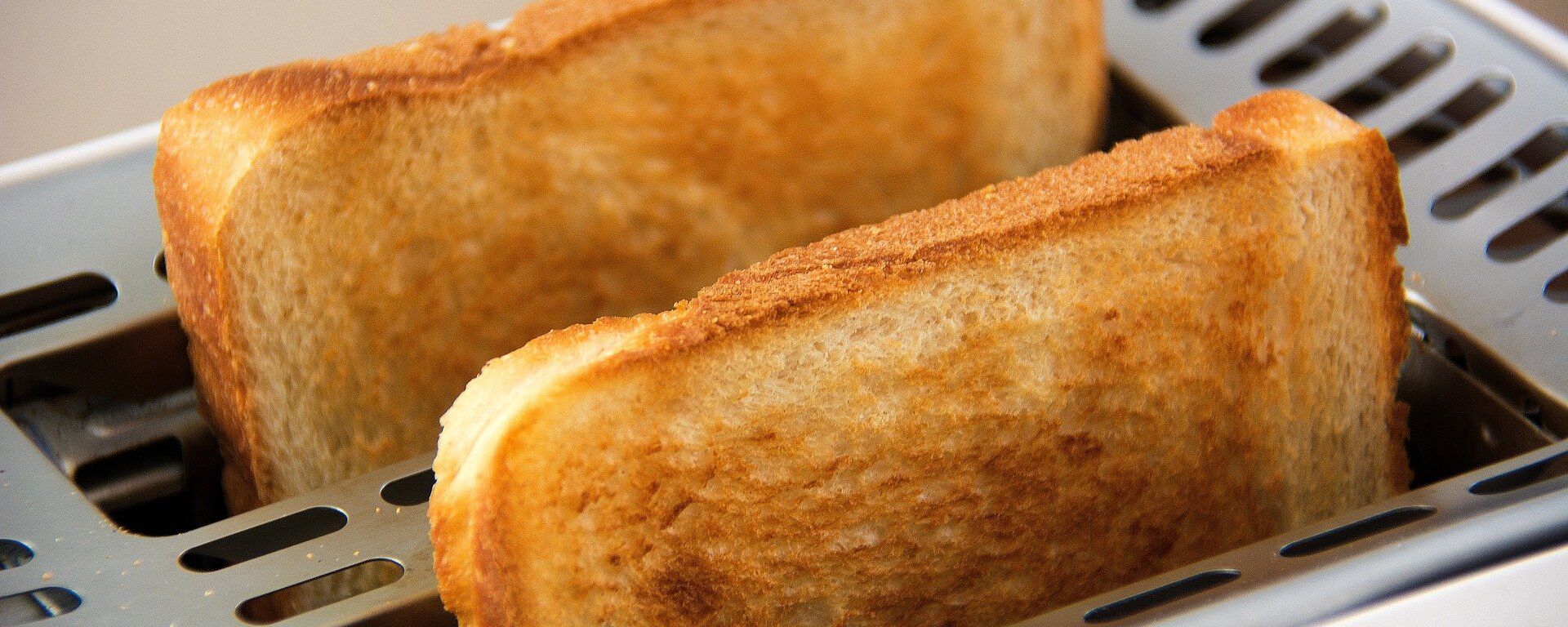https://sputnikglobe.com/20220526/stratospheric-bread-prices-put-lebanon-on-edge-but-beirut-struggles-to-cope-with-crisis-1095786994.html
Stratospheric Bread Prices Put Lebanon On Edge But Beirut Struggles to Cope With Crisis
Stratospheric Bread Prices Put Lebanon On Edge But Beirut Struggles to Cope With Crisis
Sputnik International
In a bid to control the inflated costs, the government has recently introduced fixed prices for small, medium and big packages of flatbread at $5, $8 and $11... 26.05.2022, Sputnik International
2022-05-26T11:24+0000
2022-05-26T11:24+0000
2022-12-19T13:53+0000
bread
lebanon
prices
https://cdn1.img.sputnikglobe.com/img/105934/13/1059341356_0:0:1280:720_1920x0_80_0_0_fd125bb53e66ac244853d90f49ebae5d.jpg
Lebanon has limped on to a new crisis, where prices of wheat and bread have recently gone through the roof, reaching almost $20 per packages of flatbread on the black market.Running out of ResourcesHani Bohsali, president of the Syndicate of Foosdtuff Importers in Lebanon (IFBC), says the rocketing prices can be attributed to the Ukrainian conflict that kicked off on 24 February and has led to the disruption of wheat exports.According to Bohsali, Lebanon is already running out of wheat. The government has enough grain at present to last less than two months. But as the conflict in Ukraine continues, chances that these supplies will be replenished are low.The problem is that for a country, where unemployment exceeds 30 percent and where most people live in poverty, losing the option to buy such basics as bread, could spell trouble.Another Turmoil?The Lebanese have taken to the streets several times in the past to protest against the sky-high costs of living and the inflated price of gasoline and food and there are now fears that these demonstrations will break out once more with even greater strength.The Lebanese government knows very well what the repercussions of such turmoil might entail. Many still remember the bread riots of Egypt in 1977, when clashes erupted between the security forces and the masses that came to protest against the decision to cut flour subsidies. A similar upheaval was also seen in Sudan and authorities in Beirut are determined to avoid a similar scenario.One of the measures the government has recently introduced was a fixed price list on flatbread to avoid the black market inflating costs.Since last week, a small parcel of flatbread has been $5 across Lebanon. A medium one has beeen $8, and a big parcel is available for a bit more than $11.Bohsali believes that regulating bread prices was the right decision, primarily because the Lebanese people, who are suffering from a number of economic woes, would not be able to absorb yet another spike in costs. But he added that regulating costs is one thing, providing a steady flow of wheat is another.But as Lebanon's debt continues to rise, with the country struggling to find funds to keep the sinking economy afloat, affording pricey imports from the West might prove impossible.
https://sputnikglobe.com/20220521/uk-bread-shortage-inevitable-as-police-warn-of-surge-in-crime-amid-cost-of-living-crisis-1095686128.html
lebanon
Sputnik International
feedback@sputniknews.com
+74956456601
MIA „Rossiya Segodnya“
2022
News
en_EN
Sputnik International
feedback@sputniknews.com
+74956456601
MIA „Rossiya Segodnya“
Sputnik International
feedback@sputniknews.com
+74956456601
MIA „Rossiya Segodnya“
bread, lebanon, prices
Stratospheric Bread Prices Put Lebanon On Edge But Beirut Struggles to Cope With Crisis
11:24 GMT 26.05.2022 (Updated: 13:53 GMT 19.12.2022) In a bid to control the inflated costs, the government has recently introduced fixed prices for small, medium and big packages of flatbread at $5, $8 and $11 respectively. The authorities are also considering diversifying its wheat imports by securing supplies from the US, Canada and Australia.
Lebanon has limped on to a new crisis, where prices of wheat and bread have recently gone through the roof, reaching almost $20 per packages of flatbread on the
black market.
Hani Bohsali, president of the Syndicate of Foosdtuff Importers in Lebanon (IFBC), says the rocketing prices can be attributed to the Ukrainian conflict that kicked off on 24 February and has led to the disruption of wheat exports.
"60 percent of Lebanon’s wheat needs are imported from Ukraine and Russia. Before the start of the conflict, we used to import about 511,000 tons per annum. Now we almost have nothing," he lamented.
According to Bohsali, Lebanon is already running out of wheat. The government has enough grain at present to last less than two months. But as the conflict in Ukraine continues, chances that these supplies will be replenished are low.
The problem is that for a country, where unemployment exceeds 30 percent and where most people live in poverty, losing the option to buy such basics as bread, could
spell trouble.
The Lebanese have taken to the streets several times in the past to protest against the sky-high costs of living and the inflated price of gasoline and food and there are now fears that these demonstrations will break out once more with even greater strength.
"Lebanon is already suffering from unprecedented economic deterioration," explained Bohsali, referring to the rising inflation, devaluation of the national currency and deep poverty. "But the lack of wheat might get us into another crisis, a more serious one," he added.
The Lebanese government knows very well what the repercussions of such turmoil might entail. Many still remember the bread riots of Egypt in 1977, when clashes erupted between the security forces and the masses that came to protest against the decision to cut flour subsidies. A similar upheaval was also seen in Sudan and authorities in Beirut are determined to avoid a similar scenario.
One of the measures the government has recently introduced was a fixed price list on flatbread to avoid the black market inflating costs.
Since last week, a small parcel of flatbread has been $5 across Lebanon. A medium one has beeen $8, and a big parcel is available for a bit
more than $11.
Bohsali believes that regulating bread prices was the right decision, primarily because the Lebanese people, who are suffering from a number of economic woes, would not be able to absorb yet another spike in costs. But he added that regulating costs is one thing, providing a steady flow of wheat is another.
"Right now, we are looking at diversifying our wheat imports. We are considering purchasing wheat from the US, Canada and Australia, and talks for this have already started".
But as Lebanon's debt continues to rise, with the country struggling to find funds to keep the sinking economy afloat, affording pricey imports from the West might prove impossible.


